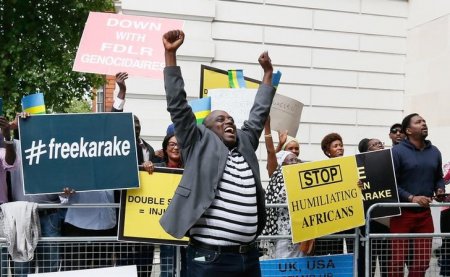Bid to extrade Rwandan spy chief to Spain rejected by UK court
A COURT in Britain said Monday it had dropped an extradition case against Rwanda’s intelligence chief.
Karake was arrested while on a visit to London in June upon the request of the Spanish government which issued an arrest warrant against him.
Karake’s arrest angered authorities in Kigali, who described it as an “outrage”, and prompted protests outside the British embassy in the Rwandan capital as well as outside Westminster Magistrates Court in London, where Karake appeared on June 25.
Conflicting accounts have emerged over the years of exactly what happened in parts of Rwanda and eastern Democratic Republic of Congo where many suspected Hutu “genocidaires” fled the RPF advance in 1994 and which Rwandan forces later invaded.
The Tutsi-dominated RPF helped end the genocide, in which some 800,000 Tutsis and moderate Hutus were slaughtered by Hutu extremists.
Officials did not immediately provide further details on Karake’s but a fuller statement from Britain’s Crown Prosecution Service is expected shortly.
In 2008, a Spanish judge indicted him for alleged war crimes along with 39 other current or former high-ranking Rwandan military officials.
A Spanish judicial source had said Karake was accused of “crimes of terrorism” linked to the killing of nine Spanish citizens in Rwanda in the 1990s.
Rwanda’s Foreign Minister Louise Mushikiwabo said in a tweet she was delighted Karake would be coming home, adding: ‘This was an unnecessary and abusive process’. The killings of the Spaniards were alleged revenge murders for crimes during the genocide.
Cherie Blair spearheaded Karake’s battle against extradition to face the Spanish charges. Referring to the Spanish indictment, she said: ‘I hesitate to call it a legal document actually, it is in fact a political tract’.
Rwanda had reacted furiously to Karenzi’s arrest, with President Paul Kagame saying it showed “absolute arrogance and contempt”.








